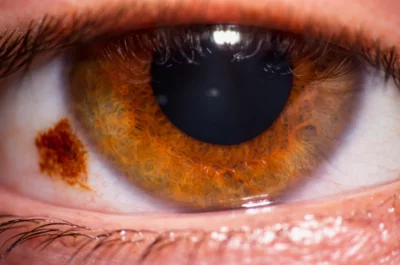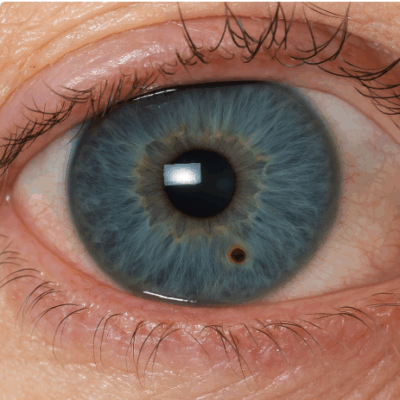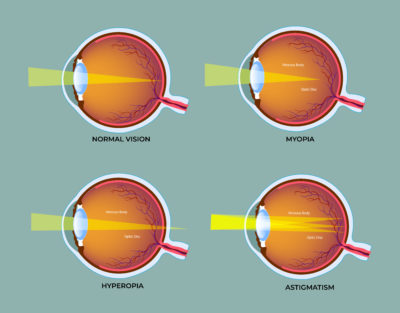Blinking is something we do every few seconds without even noticing, yet it plays a crucial role in maintaining healthy eyes. When you ask yourself why eyes blink, the answer lies in protection, lubrication, and comfort.
On average, humans blink 14 to 17 times per minute, resulting in thousands of blinks each day. Despite seeming like a simple reflex, blinking has complex functions, from keeping the eyes moist to protecting them from dust and irritants.
Understanding why our eyes blink can help highlight its importance in daily life, as well as what happens when blinking becomes too frequent or too infrequent.

The Science of Blinking: Understanding the Reflex
Blinking is an involuntary reflex action controlled by the brain and eyelid muscles. The eye blink reflex is essential for protecting the cornea and conjunctiva from foreign particles. This reflex also helps spread the tear film evenly across the eye, ensuring clear vision.
Although it is mostly automatic, blinking can also be voluntary, such as when we intentionally close our eyes tightly. The blink rate may vary depending on the activity. For example, it is lower when reading or using screens and higher during conversations or periods of fatigue.
Why Do Our Eyes Blink?
So, why do we blink? The answer lies in both physiology and eye protection.
Blinking lubricates the surface of the eye by spreading tears across the cornea, preventing dryness. It also removes dust, allergens, and other small debris.
The function of blinking is essentially to protect and nourish the eyes, maintaining a clear and comfortable vision. Simply put, eyes blink to protect against environmental irritants and to refresh the tear layer needed for healthy vision.
How Often Do We Blink and Why Is It Important?
If you wonder how often we blink, the average is 14-17 times per minute, or nearly 1,020 times per hour. This normal blink rate helps maintain the tear film and ensures ongoing eye protection. Reduced blinking is a common occurrence during screen use, which can lead to digital eye strain and dryness.
On the other hand, excessive blinking may signal irritation or stress. Both conditions highlight the importance of maintaining a healthy blink rate for comfort and vision.
The Benefits of Blinking for Eye Health
The benefits of blinking go beyond simple moisture. Each blink clears away debris, spreads natural oils from the meibomian glands, and provides the cornea with nutrients from tears.
For individuals who spend long hours on computers or mobile screens, blinking and eye comfort become even more critical, as reduced blinking can lead to dryness and discomfort. By consciously blinking more frequently during digital work, you can reduce eye fatigue and prevent complications such as dry eye syndrome.
Surprising Facts About Blinking
There are many surprising facts about blinking that most people do not realise. For instance, women tend to blink more often than men.
People blink less while reading and more during conversations, possibly due to the influence of attention and emotional cues. Another interesting fact is that why eyes blink frequently can often be linked to nervousness or stress, showing how emotions influence reflexes.
Research also suggests that blinking patterns can reveal neurological conditions, making it more than just a simple eye reflex.
What Happens When You Blink Too Much or Too Little?
Abnormal blinking can cause problems. Excessive blinking may be caused by dry eyes, stress, eye strain, corneal irritation, or even neurological disorders. If you wonder why you blink too much, stress and fatigue are often contributing factors.
On the other hand, when people ask “why I blink less”, it is often linked to reduced tear production or conditions like Parkinson’s disease. Both excessive and insufficient blinking can impact eye health, underscoring the importance of balance.
Can Blinking Be a Sign of an Underlying Medical Condition?
Sometimes, abnormal blinking is a symptom of an underlying health issue. Blinking and medical conditions are linked in several cases.
For example, excessive eye blinking may suggest dry eye syndrome, blepharospasm, or even neurological conditions such as Tourette’s syndrome. Similarly, excessive blinking of the eyes could be due to eye allergies or uncorrected vision problems.
Seeking professional advice is crucial when persistent abnormal blinking is accompanied by pain, vision changes, or irritation.
Conclusion: The Importance of Blinking for Eye Health
Blinking is far more than a reflex. It is a vital process for protecting and nourishing the eyes. Understanding why eyes blink helps us appreciate how blinking prevents dryness, clears debris, and maintains clear vision.
Problems such as excessive blinking of the eye or reduced blinking should not be ignored, as they may indicate underlying health concerns. Good eye care habits, such as following the 20-20-20 rule, staying hydrated, and seeking medical help when needed, ensure long-term eye comfort and health.








